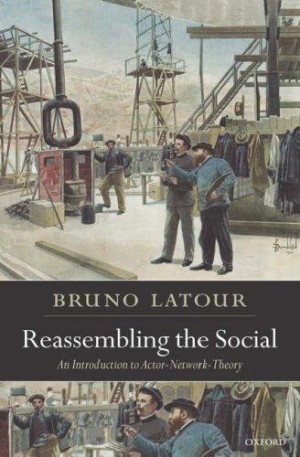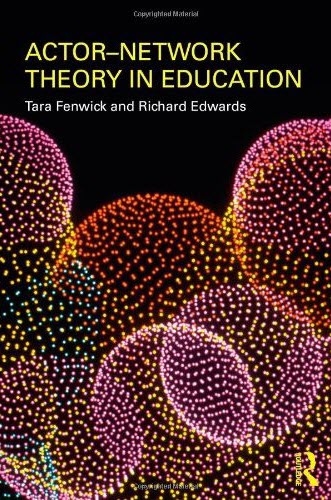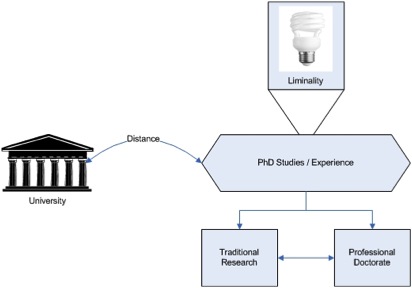 Having spoken to a number of colleagues using actor-network theory in their work, including Ailsa Haxell, Inger Mewburn, and Steve_JP, among others, I now believe I know enough about it to begin reading one of the significant texts in the theory, Reassembling the Social: An Introduction to Actor-Network-Theory, by Bruno Latour.
Having spoken to a number of colleagues using actor-network theory in their work, including Ailsa Haxell, Inger Mewburn, and Steve_JP, among others, I now believe I know enough about it to begin reading one of the significant texts in the theory, Reassembling the Social: An Introduction to Actor-Network-Theory, by Bruno Latour.
I have unsuccessfully tried to read this work several times in the past, though it uses a language that is somewhat different than common social science terminology and has heretofore baffled me. Speaking with colleagues, especially around our informal #phdchat, has been quite valuable in working my way through enough actor-network theory (ANT) that I proposed using this to inform my methodology in my doctoral thesis.
This text is one of the two books I am bringing with me as I head to Lancaster University this week for a residential week with some meetings with my supervisors. I expect to make enough sense of it along the way to talk a bit more about it in the near future, at least enough to articulate why I am proposing its use. While I wish John Law, one of the important voices in ANT, were still at Lancaster, he has moved on while leaving enough presence on the campus for there to still be an ANT sensibility present. Let’s see if we can continue to rally behind the banner!



